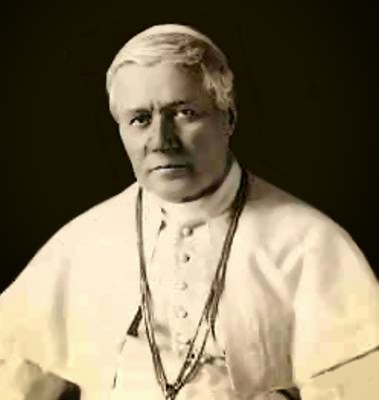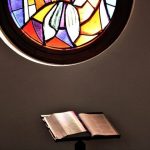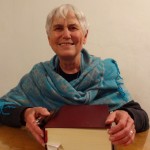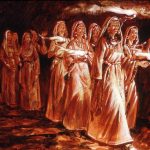
Hard words of Pope Pius X show us the development of the Church regarding to jewish people
Today the Church celebrates Pope Pius X. However, it’s widely known that he said severe words about Jewish people in his time. Far from wanting to tarnish his image as saint of the Church, this article wants to show the improvement of the Church’s teaching towards the Jewish people in our days comparing to his time.
On January 26, 1904, Theodor Herzl had an audience with Pope Pius X in the Vatican to seek his support for the Zionist effort to establish a Jewish state in Palestine. He recorded his account of the meeting in his diary. The following is an excerpt from it:
” He seated himself in an armchair, a throne for minor occasions. Then he invited me to sit down right next to him and smiled in friendly anticipation.
[…] I briefly placed my request before him. He, however, possibly annoyed by my refusal to kiss his hand, answered sternly and resolutely:
We cannot give approval to this movement. We cannot prevent the Jews from going to Jerusalem—but we could never sanction it. The soil of Jerusalem, if it was not always sacred, has been sanctified by the life of Jesus Christ. As the head of the Church I cannot tell you anything different. The Jews have not recognized our Lord, therefore we cannot recognize the Jewish people.”
Hence the conflict between Rome, represented by him, and Jerusalem, represented by me, was once again opened up.
At the outset, to be sure, I tried to be conciliatory. I recited my little piece about extraterritorialization, res sacrae extra commercium [holy places removed from business]. It didn’t make much of an impression. Gerusalemme, he said, must not get into the hands of the Jews.
“And its present status, Holy Father?”
“I know, it is not pleasant to see the Turks in possession of our Holy Places. We simply have to put up with that. But to support the Jews in the acquisition of the Holy Places, that we cannot do.”
I said that our point of departure had been solely the distress of the Jews and that we desired to avoid the religious issues.
“Yes, but we, and I as the head of the Church, cannot do this. There are two possibilities. Either the Jews will cling to their faith and continue to await the Messiah who, for us, has already appeared. In that case they will be denying the divinity of Jesus and we cannot help them. Or else they will go there without any religion, and then we can be even less favorable to them.”
“The Jewish religion was the foundation of our own; but it was superseded by the teachings of Christ, and we cannot concede it any further validity. The Jews, who ought to have been the first to acknowledge Jesus Christ, have not done so to this day.”
It was on the tip of my tongue to say, “That’s what happens in every family. No one believes in his own relatives.” But I said instead: “Terror and persecution may not have been the right means for enlightening the Jews.”
But he rejoined, and this time he was magnificent in his simplicity:
“Our Lord came without power. Era povero [He was poor]. He came in pace [in peace]. He persecuted no one. He was persecuted.
He was abbandonato [forsaken] even by his apostles. Only later did he grow in stature. It took three centuries for the Church to evolve. The Jews therefore had time to acknowledge his divinity without any pressure. But they haven’t done so to this day.”
- Bibliography: Raphael Patai, The Complete Diaries of Theodor Herzl, translated by Harry Zohn (New York/London: Herzl Press, Thomas Yoseloff, 1960







